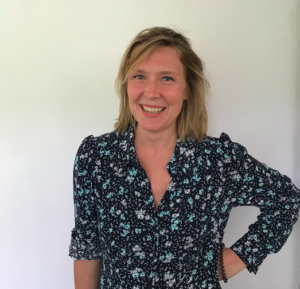Placemaking
In 2017, the University of Amsterdam (UvA) turned the philosophy and methodology of placemaking, based on the principle that places are designed on the basis of local knowledge and local qualities while putting the end-user central, into the elective course Placemaking. This course focuses on linking theory, policy and implementation of placemaking, and immerses students in the campus area.
Interdisciplinary student teams work on a challenge for a local client and learn about and contribute to the place where they study. In co-creation with the most important stakeholders, students design an ‘intervention’ – based on research – that contributes to improving the area.
With Placemaking, UvA lecturers and students contribute to a sustainable relationship between the university, the city and society, tackling – often complex – issues that exist among local users and organisations, and developing skills that matter to realise change.
Relay course
Placemaking is a relay course: through a sustainable collaboration between the UvA and clients, a new group of students continues to build on the relevant area file every semester. Knowledge and insights are anchored in the area, even after students have completed the course.
Finally, a course where we apply theory to solve real-world problems and come up with and actually build lasting solutions – that's what makes Placemaking so cool!
Katusha Sol

Curriculum developer at the Institute for Interdisciplinary Studies (IIS) at the University of Amsterdam
“I designed this course to offer students an education that allows them not only to learn about and from society but to make an impact in society as well. It is very valuable that students learn to combine knowledge from different sectors, fields, and stakeholders. With ‘Placemaking’, students move beyond the walls of the university and learn to communicate and discuss their findings with a variety of people. Students learn to retrieve information from society, but also to co-create and negotiate. This can be challenging – How do you get out of conflicts? How do you show action? – but it is extremely valuable for their personal development.”
Moving forward
Placemaking won the Dutch Education Award in 2023. With the allocated grant, the team aims to tackle societal issues at many more locations in collaboration with the municipality of Amsterdam, beyond UvA campus areas. To this end, they aim to invest in collaborations with students in senior secondary vocational education (MBO) and higher professional education (HBO).
Katusha explains: “These students can add building or engineering skills, or a creative perspective to the analytical and conceptual skills of most university students. The diversification of the student population will be a very valuable contribution to Placemaking.“
Learning outcomes
- The student is able to listen to others, foster genuine dialogue, advocate views, manage conflicts and adapt communication to diverse groups
- The student is able to be in the here and now, without judgement and in a state of open-ended presence
- The student is able to apply co-creation techniques to motivate, to build, develop and facilitate collaborative relationships with diverse stakeholders, characterised by psychological safety
- The student is able to apply creative thinking techniques to generate and develop original ideas and innovations
- The student has a keen sense of being connected with and/or being a part of a larger whole, such as a community, humanity or global ecosystem
- The student is able to apply techniques to inspire and mobilise others to engage in shared purposes
- The student is able to initiate a change process, based on the integration of different types of knowledge
